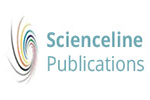(2024) Pharmacokinetic Characteristics of Diclazuril in Japanese Quails (Coturnix japonica) and Domestic Pigeons (Columba livia). Journal of World's Poultry Research. pp. 204-210. ISSN 2322455X
|
Text
JWPR14(2) 204-210, 2024.pdf - Published Version Download (585kB) |
Abstract
Coccidiosis, caused by the protozoan Eimeria, is a significant disease in poultry farms worldwide, leading to substantial economic losses. Triazines, benzene-aceto-nitrile derivatives, are widely employed in the field of veterinary healthcare to combat the hazardous impacts of protozoan parasite infestation comprising coccidiosis. The current research was designed to investigate the pharmacokinetic profile of diclazuril, a member of triazines, in Japanese quails (Coturnix japonica) and domestic pigeons (Columba livia) following single oral administration at 0.3 mg/kg body weight. 78 Quails (male: female, 1:1, 7 weeks old) and 78 pigeons (male: female, 1:1, 4 weeks old) were randomly divided into 13 groups for each species (n=6 birds/ group). Plasma samples were obtained at various time intervals (at time 0 preceding diclazuril administration, and 0.5, 1, 4, 8, 12, 24, 48, 72, 96, 120, 144, and 168 hours after diclazuril administration) to determine its concentration utilizing high-performance liquid chromatography (HPLC). The non-compartmental approach was applied to assess the pharmacokinetic parameters via the aid of WinNonlin 8.3 software. In quails and pigeons, the peak plasma concentrations were 5.35 and 9.14 μg/mL attained at 8 hours, respectively. Additionally, the elimination half-lives (T1/2λz) were 30.74 and 26.48 hours, and the area under the plasma concentration-time curve from time zero to the last sample (AUC0-last) values were 155.67 and 343.57 μg h/mL, respectively. The mean residence time was 30.71 hours in quails and 39.68 hours in pigeons. Diclazuril exhibited favorable pharmacokinetic characteristics after oral administration at a dose of 0.3 mg/kg in quails and pigeons. However, to adjust the dosage regimen for curing coccidiosis, a future study is warranted to determine the clinical efficacy against coccidia infection. Moreover, further investigation is needed to evaluate the tissue residues and calculate the withdrawal time of diclazuril in quails and pigeons. © Open Access: This article is licensed under a Creative Commons Attribution 4.0 International License, which permits use, sharing, adaptation, distribution and reproduction in any medium or format, as long as you give appropriate credit to the original author(s) and the source, provide a link to the Creative Commons licence, and indicate if changes were made. The images or other third party material in this article are included in the article’s Creative Commons licence, unless indicated otherwise in a credit line to the material. If material is not included in the article’s Creative Commons licence and your intended use is not permitted by statutory regulation or exceeds the permitted use, you will need to obtain permission directly from the copyright holder. To view a copy of this licence, visit https://creativecommons.org/licenses/by/4.0/.
| Item Type: | Article |
|---|---|
| Keywords: | Diclazuril; High-performance liquid chromatography; Japanese quail; Pharmacokinetic; Pigeon |
| Subjects: | S Agriculture > SF Animal culture |
| Divisions: | Journal of World's Poultry Research (JWPR) |
| Page Range: | pp. 204-210 |
| Journal or Publication Title: | Journal of World's Poultry Research |
| Journal Index: | Scopus |
| Volume: | 14 |
| Number: | 2 |
| Publisher: | Scienceline Publication |
| Identification Number: | https://doi.org/10.36380/jwpr.2024.21 |
| ISSN: | 2322455X |
| Depositing User: | Dr. Daryoush Babazadeh |
| URI: | http://eprints.science-line.com/id/eprint/1160 |
Actions (login required)
 |
View Item |


 Dimensions
Dimensions Dimensions
Dimensions